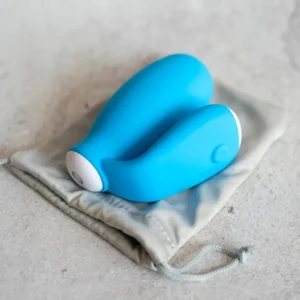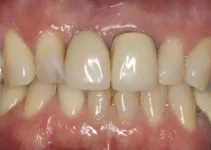If you’re struggling with disruptive snoring, a snore stopper mouth guard might be the simple solution you’ve been searching for. Designed to alleviate snoring by adjusting the position of your jaw and tongue during sleep, these mouth guards ensure a clearer airway throughout the night. This not only improves your sleep quality but also benefits those around you by providing a quieter sleeping environment. Discover the types, benefits, and user experiences associated with snore stopper mouth guards to determine if this device could be the key to a more restful night.
What Is a Snore Stopper Mouth Guard?
A snore stopper mouth guard, also known as an anti-snoring mouthpiece, is a device worn in the mouth during sleep to prevent or reduce snoring. These mouth guards are designed to address the root causes of snoring by repositioning the lower jaw, tongue, and other anatomical structures. Chronic snoring can lead to various health issues, including sleep apnea, cardiovascular problems, and daytime fatigue, making it important to find effective solutions.
Snore stopper mouth guards are often recommended by sleep specialists and dentists as a non-invasive approach to treating snoring. They are custom-fitted or available in over-the-counter versions, providing a comfortable and accessible option for many individuals. Numerous studies have shown that using a snore stopper mouth guard can significantly improve sleep quality and reduce the frequency and intensity of snoring.
In the following sections, we will delve deeper into the specifics of snore stopper mouth guards, including an overview, how they work, and the different types available on the market.
Overview of Snore Stopper Mouth Guards
Snore stopper mouth guards are dental devices that help mitigate snoring by maintaining an open airway during sleep. These devices can be categorized into two primary types: mandibular advancement devices (MADs) and tongue stabilizing devices (TSDs). Both types aim to enhance breathing efficiency and minimize the vibrations that cause snoring.
Mandibular advancement devices work by gently moving the lower jaw forward, which tightens the soft tissues and muscles of the upper airway. This prevents collapse during sleep, thus reducing snoring. On the other hand, tongue stabilizing devices hold the tongue in a forward position, keeping it from falling back and obstructing the airway.
Both types of mouth guards are designed to be comfortable for long-term use and are often adjustable to ensure a correct fit. Many users report that they not only stop snoring with these devices but also experience improved overall sleep quality, leading to better daytime functioning.
How Snore Stopper Mouth Guards Work
Snore stopper mouth guards function primarily by ensuring that the airways remain unobstructed during sleep. By adjusting the position of the jaw or tongue, these devices help to keep the air passage clear, reducing the frequency of snoring. The mechanical action can be explained in several steps:
- The mouth guard is placed in the mouth before sleeping.
- For MADs, the device gently pushes the lower jaw forward.
- For TSDs, the device holds the tongue in a forward position.
- The repositioning of these structures prevents airway collapse.
- With a clear airway, airflow is smoother, reducing the vibrations that cause snoring.
The efficacy of these devices has been supported by various clinical studies. For instance, a study published in the American Journal of Respiratory and Critical Care Medicine found that mandibular advancement devices reduced snoring by up to 50% in participants. The study also noted significant improvements in sleep parameters and overall patient satisfaction.
Moreover, the use of snore stopper mouth guards can also aid in reducing the risk of more severe sleep disorders like obstructive sleep apnea (OSA). OSA is closely linked with chronic snoring, and its management often involves similar principles of airway maintenance.
Types of Snore Stopper Mouth Guards
There are several types of snore stopper mouth guards available, each tailored for specific needs and preferences. The main types include:
- Custom-Fitted Mouth Guards: These are made based on a dental impression of your mouth, offering a precise fit and hence, often more effective results. They are typically more comfortable and durable but can be more expensive.
- Boil-and-Bite Mouth Guards: Available over-the-counter, these types can be molded at home. They are submerged in boiling water to soften and then bitten into to create a semi-custom fit. They are more affordable but may not offer the same level of comfort and efficacy as custom-fitted guards.
- Adjustable Mouth Guards: These come with mechanisms that allow you to adjust the position of the lower jaw. This feature is beneficial for finding the most comfortable and effective jaw position.
- Tongue Stabilizing Devices (TSDs): Unlike MADs, TSDs focus on keeping the tongue from falling back into the throat. These devices are often easier to fit and can be particularly useful for people with dental work that precludes using MADs.
Each type of snore stopper mouth guard has its advantages and potential drawbacks, making it essential to consider your specific needs, the severity of your snoring, and any underlying health conditions. Consulting with a healthcare provider can help determine the most suitable option for you. As you explore the world of snore stopper mouth guards, you might find additional resources and articles beneficial. Be sure to check out our other informative pieces to make an educated decision and improve your sleep quality.
Benefits of Using a Snore Stopper Mouth Guard
Snoring is not just a nuisance for those around you; it can also be a sign of underlying health issues. Using a snore stopper mouth guard can bring about a range of benefits, from improved sleep quality to better overall health. In this article, we’ll explore the advantages of using a snore stopper mouth guard and how it can make a significant difference in your life. Many people underestimate the effects of snoring, dismissing it as harmless. However, snoring can lead to fragmented sleep, reduced oxygen supply, and increased stress levels. A snore stopper mouth guard is a simple yet effective solution to mitigate these issues. Let’s dive into the specific benefits of incorporating this device into your nightly routine.
Better Sleep Quality
One of the most immediate benefits of using a snore stopper mouth guard is the enhancement of sleep quality. Snoring often causes interruptions in sleep patterns, leading to frequent awakenings throughout the night. By keeping your airway open and unobstructed, the mouth guard ensures that you and your partner can enjoy a more restful and uninterrupted sleep.
According to numerous studies, individuals who use a snore stopper mouth guard report experiencing fewer disturbances and longer periods of deep sleep. This deep sleep is crucial for the body’s natural repair processes, including muscle recovery and memory consolidation. Improved sleep quality not only leaves you feeling more refreshed but also contributes to better overall well-being.
Health Improvements
Consistent and heavy snoring is often linked to several health conditions, including obstructive sleep apnea, hypertension, and cardiovascular problems. By wearing a snore stopper mouth guard, you can reduce the risk of developing these serious health issues. The device works by preventing the collapse of the airway, ensuring a steady flow of oxygen while you sleep.
Moreover, better oxygenation during sleep can lead to numerous physiological benefits. Improved blood oxygen levels support heart health, enhance brain function, and even bolster your immune system. Research shows that individuals using snore stopper mouth guards often experience reduced symptoms of sleep apnea and improved overall health markers.
Increased Energy Levels
A direct outcome of better sleep quality and improved health is an increase in daily energy levels. When your body gets the rest it needs, you’re more likely to wake up feeling revitalized and ready to tackle the day’s challenges. Using a snore stopper mouth guard can help eliminate the fatigue and drowsiness commonly associated with poor sleep.
Enhanced energy levels have a ripple effect on various aspects of life. From enhanced productivity at work to more enjoyable personal activities, the benefits are widespread. You may find that you have more stamina for exercise, better concentration in daily tasks, and an overall improvement in your mood and outlook on life.
In conclusion, the advantages of using a snore stopper mouth guard are extensive and multifaceted. From achieving better sleep quality and health improvements to experiencing higher energy levels, the positive impact on your life can be profound. Don’t hesitate to explore more about this and other topics related to sleep and overall health in our other articles.
How to Choose the Best Snore Stopper Mouth Guard for You
Choosing the right snore stopper mouth guard can be a turning point in achieving a more restful night’s sleep. There are a variety of options available, each with its own benefits and drawbacks. By understanding the crucial factors to consider, you can make an informed decision that will significantly improve your sleep quality. In this article, we will explore the important aspects to consider when selecting a snore stopper mouth guard, including key factors, the debate between custom and over-the-counter options, and essential maintenance tips.
Let’s delve deeper into these elements to help you choose a snore stopper mouth guard that best suits your needs.
Factors to Consider
When selecting a snore stopper mouth guard, there are several factors you need to consider to ensure you choose the most effective and comfortable option. The first factor is fit and comfort. A mouth guard that fits well will be more comfortable to wear throughout the night and less likely to cause discomfort or pain.
Material quality is another crucial aspect. Look for mouth guards made from high-quality, durable materials that won’t degrade quickly. BPA-free materials are often recommended for safety and longevity. Additionally, consider the design and adjustability of the mouth guard. An adjustable design allows for a personalized fit, which can enhance comfort and effectiveness.
Finally, it’s important to take into account any special features that might be beneficial for you, such as breathability features or ease of cleaning. By weighing these factors, you can find a mouth guard that aligns well with your specific needs and preferences.
Custom vs. Over-the-Counter Options
One of the most significant decisions you’ll face is choosing between a custom-fitted mouth guard and an over-the-counter (OTC) option. Custom-fitted mouth guards are specifically designed to fit the unique contours of your mouth. This ensures a precise fit, which can improve both comfort and effectiveness in reducing snoring.
On the other hand, OTC mouth guards are more affordable and readily available. While they may not offer the same level of customization, many people find them to be sufficient for their needs, especially as an initial solution. They are also available in a variety of designs, making it easier to find one that suits you.
However, it is important to weigh the pros and cons of each option. Custom-fitted mouth guards generally require a visit to a dental professional and can be more expensive, but they might be a better long-term investment. OTC mouth guards are more economical but may not provide the same level of fit and comfort. Consider your budget, snoring severity, and comfort preference when making this decision.
Maintenance and Care Tips
Proper maintenance and care of your snore stopper mouth guard are essential to ensure it remains effective and hygienic. Regular cleaning is a key part of this process. Most mouth guards can be cleaned using a toothbrush and mild soap or a specialized cleaning solution, ensuring that you remove bacteria and food particles that can accumulate.
It is also important to store the mouth guard properly. Use a ventilated case to keep it clean and dry when not in use. Avoid exposing it to extreme temperatures, as this can warp the material and affect the fit. Regularly inspect your mouth guard for signs of wear and tear, and replace it as needed to maintain its effectiveness.
Lastly, follow any specific care instructions provided by the manufacturer. Adhering to these guidelines will help prolong the lifespan of your mouth guard and ensure that it continues to provide effective snoring relief.
By taking these maintenance and care tips to heart, you can extend the usability of your snore stopper mouth guard and ensure it remains in good condition, providing you with a better, quieter night’s sleep.
We encourage you to explore more articles on our website to gain further insights into sleep health and other related topics. An informed decision can lead to a happier, healthier life.
Frequently Asked Questions about Snore Stopper Mouth Guards
Having trouble sleeping because of snoring, either your own or your partner’s? Here are some common questions about how snore stopper mouth guards can help improve your sleep quality.
How does a snore stopper mouth guard work?
A snore stopper mouth guard typically works by adjusting the position of your jaw and tongue to keep the airway open during sleep. This reduces the vibrations that cause snoring as air passes more freely. By maintaining an open, unobstructed airway, these mouth guards help users and their partners enjoy a quieter, more restful sleep.
Is a snore stopper mouth guard comfortable to use?
Comfort can vary depending on the design and material of the mouth guard, but many modern snore stoppers are made of flexible materials that mold to the shape of your mouth, ensuring a comfortable fit. Most users adapt to wearing them after just a few nights, and the benefits of better sleep generally outweigh any initial discomfort.

My name is Salman Kapa, a 73-year-old expert in bone regeneration and dental implantology. With decades of experience in the field, I am dedicated to advancing our understanding of oral health and hygiene. Through my research and writing, I aim to contribute to the development of innovative solutions in dental care.




